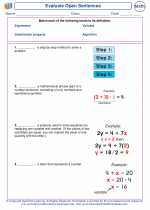Numbers
What are numbers?
Numbers are mathematical objects used to count, measure, and label. They can be used to represent quantities, order, and patterns.
Types of Numbers
There are several types of numbers, including:
- Whole Numbers: 0, 1, 2, 3, ...
- Integers: ... -3, -2, -1, 0, 1, 2, 3, ...
- Rational Numbers: Numbers that can be expressed as a fraction, such as 1/2, 3/4, 5/2, etc.
- Real Numbers: All rational and irrational numbers, such as √2, π, etc.
Properties of Numbers
Numbers have various properties, including:
- Commutative Property: a + b = b + a
- Associative Property: (a + b) + c = a + (b + c)
- Distributive Property: a * (b + c) = a * b + a * c
- Identity Property: a + 0 = a, a * 1 = a
- Inverse Property: a + (-a) = 0, a * (1/a) = 1
Place Value
Numbers are made up of digits, and the position of each digit in a number determines its value. This is known as place value.
For example, in the number 3,215, the digit 3 is in the thousands place, the digit 2 is in the hundreds place, the digit 1 is in the tens place, and the digit 5 is in the ones place.
Number Operations
Basic number operations include addition, subtraction, multiplication, and division. These operations follow specific rules and properties.
Prime and Composite Numbers
Prime numbers are numbers greater than 1 that have no positive divisors other than 1 and themselves. Composite numbers are numbers that have more than two positive divisors.
Even and Odd Numbers
Even numbers are integers that are divisible by 2, while odd numbers are integers that are not divisible by 2.
[Numbers] Related Worksheets and Study Guides:
.◂Math Worksheets and Study Guides Fourth Grade. Evaluate Open Sentences
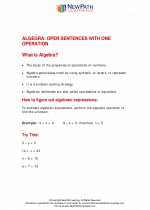
 Worksheet/Answer key
Worksheet/Answer key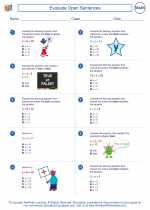
 Worksheet/Answer key
Worksheet/Answer key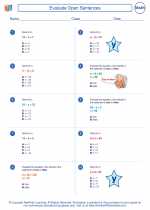
 Worksheet/Answer key
Worksheet/Answer key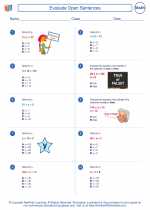
 Vocabulary/Answer key
Vocabulary/Answer key